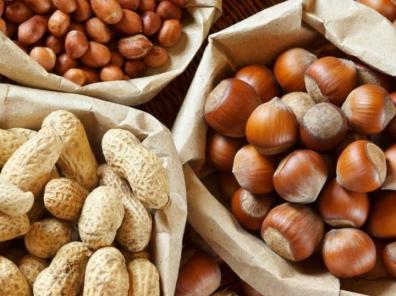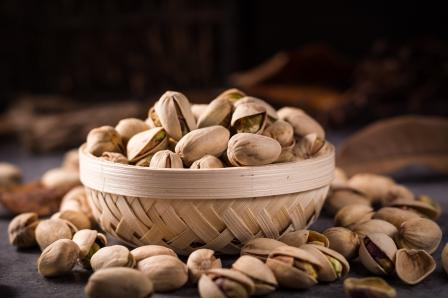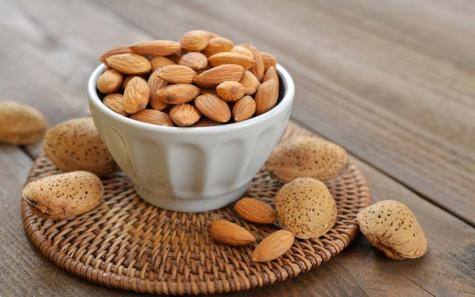In the realm of nutritious snacks, roasted peanuts stand tall as a versatile and satisfying option. Whether enjoyed as a solo snack or incorporated into various recipes, these crunchy legumes pack a punch in terms of flavor and health benefits. In this comprehensive guide, we delve into the world of healthy roasted peanuts, exploring their nutritional value, health benefits, culinary uses, and more. So, grab a handful of these delectable treats and join us on a journey to discover the wonders of roasted peanuts. **Nutritional Profile of Roasted Peanuts** Roasted peanuts are a nutritional powerhouse, rich in essential nutrients that support overall health and well-being. A 1-ounce (28-gram) serving of dry roasted peanuts contains approximately: – Calories: 161 – Protein: 7 grams – Fat: 14 grams (mostly healthy monounsaturated and polyunsaturated fats) – Carbohydrates: 4 grams – Fiber: 2 grams – Vitamin E: 21% of the Daily Value (DV) – Magnesium: 11% of the DV – Phosphorus: 14% of the DV – Niacin: 19% of the DV – Folate: 10% of the DV In addition to these nutrients, roasted peanuts are a good source of antioxidants, such as resveratrol and other polyphenols, which help protect against oxidative stress and inflammation in the body. The high protein and fiber content in peanuts also contribute to their satiating effect, making them a great snack option for weight management.
.
**Health Benefits of Roasted Peanuts** 1. **Heart Health**: The monounsaturated and polyunsaturated fats in peanuts help lower LDL (bad) cholesterol levels and reduce the risk of heart disease. The presence of resveratrol, a potent antioxidant, further enhances heart health by promoting healthy blood circulation and reducing inflammation. 2. **Weight Management**: Despite their calorie density, studies have shown that including peanuts in a balanced diet can aid in weight management. Their high protein and fiber content contribute to increased satiety, helping control hunger and reduce overall calorie intake. 3. **Blood Sugar Regulation**: Peanuts have a low glycemic index, meaning they cause a slow and steady rise in blood sugar levels. This aspect makes them suitable for individuals with diabetes or those looking to stabilize their blood sugar levels. 4. **Brain Health**: The vitamin E content in peanuts plays a vital role in maintaining cognitive function and protecting the brain from oxidative damage. Regular consumption of peanuts may help prevent age-related cognitive decline and improve overall brain health. 5. **Nutrient Density**: In addition to protein, healthy fats, and fiber, peanuts are rich in various essential nutrients like magnesium, phosphorus, niacin, and folate. These nutrients play key roles in energy production, bone health, and overall metabolic function. **Culinary Uses of Roasted Peanuts** The versatility of roasted peanuts extends beyond snacking; they can be incorporated into a variety of culinary creations to add flavor, texture, and nutrition. Here are some creative ways to enjoy roasted peanuts in your meals: 1. **Peanut Butter**: Roasted peanuts can be blended into a creamy and delicious peanut butter spread, perfect for slathering on toast, mixing into smoothies, or using as a dip for fruits and veggies.
..
2. **Trail Mix**: Combine roasted peanuts with dried fruits, seeds, and a sprinkle of dark chocolate chips to create a nutrient-dense and portable snack mix for on-the-go energy. 3. **Asian Stir-Fries**: Add roasted peanuts to stir-fries for a crunchy texture and nutty flavor. They pair well with veggies, tofu, chicken, or shrimp in dishes like Kung Pao chicken or Pad Thai. 4. **Salad Toppings**: Sprinkle crushed roasted peanuts over salads for an extra crunch and a boost of protein. They complement leafy greens, veggies, and protein sources like grilled chicken or tofu. 5. **Granola Bars**: Make homemade granola bars with a mix of oats, honey, dried fruits, and roasted peanuts for a wholesome snack that’s perfect for breakfast or a midday pick-me-up. **Choosing and Storing Roasted Peanuts** When selecting roasted peanuts, opt for those that are unsalted or lightly salted to avoid excessive sodium intake. Look for peanuts that are dry roasted without added oils or sugars for a healthier option. Store roasted peanuts in an airtight container in a cool, dark place to maintain their freshness and prevent them from becoming rancid. In conclusion, roasted peanuts are not just a tasty snack but also a nutritionally dense food with a range of health benefits. Their combination of protein, healthy fats, fiber, and essential nutrients makes them a valuable addition to a balanced diet. So, next time you’re looking for a satisfying and wholesome snack, reach for a handful of healthy roasted peanuts and enjoy the nutritional goodness they have to offer.
…
**Additional Health Tips and Precautions** While roasted peanuts offer numerous health benefits, it’s essential to consume them in moderation and be mindful of potential allergens and contaminants. Here are some additional tips and precautions to keep in mind: 1. **Allergen Awareness**: Peanuts are one of the top allergens worldwide, and for individuals with peanut allergies, even trace amounts of peanuts can trigger severe allergic reactions. If you have a peanut allergy, it’s crucial to avoid all forms of peanuts, including roasted peanuts and products containing peanuts. 2. **Portion Control**: Despite their nutritional benefits, roasted peanuts are calorie-dense, and excessive consumption can lead to weight gain. Stick to recommended portion sizes (about 1 ounce or a small handful) to enjoy the benefits of peanuts without exceeding your daily calorie intake. 3. **Avoid Sugary Coatings**: Some commercially available roasted peanuts may be coated with sugary or salty seasonings that can detract from their health benefits. Opt for plain, dry-roasted peanuts or ones that are minimally seasoned to avoid unnecessary additives. 4. **Quality Matters**: When purchasing roasted peanuts, choose high-quality brands that use fresh, good-quality peanuts and minimal additives. Check the ingredient list to ensure no undesirable additives or preservatives are included. 5. **Variety is Key**: While peanuts offer numerous health benefits, it’s essential to vary your nut consumption to obtain a diverse range of nutrients. Incorporate other nuts like almonds, walnuts, cashews, or pistachios into your diet to reap the unique nutritional benefits each nut offers.




Your comment submitted.